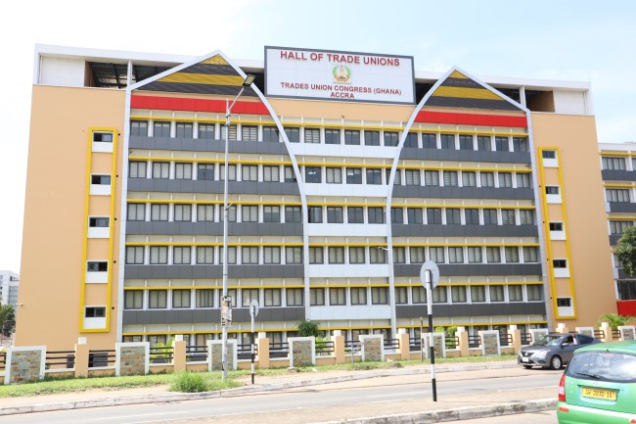Director of the Labour and Research Institute of the Trade Union Congress (TUC), Dr. Kwabena Otoo, has called for a review of the laws that govern salaries and the conditions of service of public sector workers in the country.
According to him, the current regime allows for inequities in the payment of salaries leading to the agitations from public sector workers.
“You can console yourself that your pay is okay till you see the other person’s pay. So sometimes, the agitation is about what others are receiving. And unfortunately, those that call for a restraint on the wage bill are the ones earning the highest. It becomes difficult for those struggling with 500 and 600 to accept a call for a restraint,” he said on JoyNews’ Newsfile Saturday.
Dr. Otoo noted that in 2019, the Finance Minister, Mr. Ken Ofori-Atta, admitted that public sector workers who are paid under the Single Spine Salary Structure, are receiving low pay and assured of remedies to bridge the gap. However, this promise has come to naught.
According to him, the situation has considerably worsened.
“In 2021, when those on single spine had 4% salary increment, there are some state enterprises that got 35%, and for us this is not right. It’s unfair. It further widens the gap,” he said.
“Now when you do this comparison, people tell you ‘oh, if you’re talking about the MD of say Goil or a commercial bank, you want to peg their pay to what a private sector gives’. Okay, if that is the case then they must also give us the result the private sector gives.
“But we have a situation where collectively, they’re making losses, huge margins, their losses have increased by 200%. You cannot justify that. And those losses will eventually be picked up by the state,” he added.
To close the gap, Dr. Otoo suggested that the laws governing pay should be looked at to ensure that some people are not disproportionally paid than others.
“It is important that we close this gap, and to do that, one of the things we need to do is to look hard at the laws relating to pay and conditions of service relating to the public sector because there are different laws.
“We need to harmonise pay, we need to reduce the inequities, but we need to do that by also reviewing the laws relating to pay in the public sector,” he stressed.
Latest Stories
-
Inlaks strengthens leadership team with key appointments to drive growth across sub-Saharan Africa
49 minutes -
Green Financing: What Ghana’s Eco-startups need to know
54 minutes -
CHAN Qualifiers: Amoah confident of beating Nigeria
54 minutes -
Governments deprioritising health spending – WHO
1 hour -
Lordina Foundation brings Christmas joy to orphans
1 hour -
Yvonne Chaka Chaka to headline ‘The African Festival’ this December
1 hour -
Nigerian man promised pardon after 10 years on death row for stealing hens
1 hour -
MGA Foundation deepens support for Potter’s Village
1 hour -
Galamsey: One dead, 3 injured as pit collapses at Nkonteng
2 hours -
Man, 54, charged for beating wife to death with iron rod
2 hours -
MedDropBox donates to UG Medical Centre
2 hours -
Afenyo-Markin urges patience for incoming government
2 hours -
Case challenging Anti-LGBTQ bill constitutionally was premature – Foh Amoaning
2 hours -
Fifi Kwetey: An unstoppable political maestro of our time
2 hours -
Volta Regional ECG Manager assures residents of a bright Christmas
2 hours

